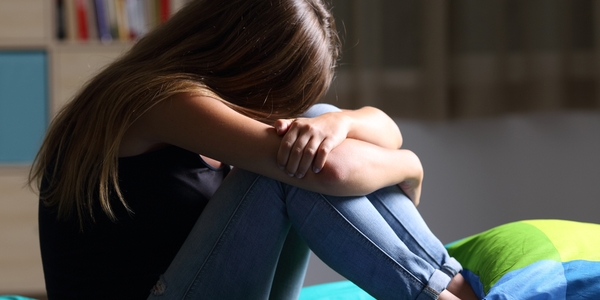As parents, much of our attention over the last three months was focused on making sure that our children were simply getting through the day – surviving the demands of virtual learning while working to ensure their mental and physical health. We watched as their entire existence was shifted and life as they knew it was turned upside down. We fantasized with them about the day they would be able to leave the house, see their friends and feel like a kid again.
But now that the time is here, reality may be playing itself out a bit differently. The behaviors your child is exhibiting may not line up with what you had initially anticipated.
Many of us adults have witnessed trauma – have endured loss, uncertainty and fear. Our life experiences and the maturation of our brains have given us the tools to be better prepared for the “gray” areas of life.
And even we struggled to wrap our heads around what was occurring.
So it should come as no shock that our children are still bearing the burden of this experience; having to learn a new way of life, accept change and allow for continued vulnerability, while being equipped with the primitive defenses with which their minds still operate.
As we begin to transition out of quarantine, some children may have difficulty leaving the confines of their safe environment for several reasons.
Transitional Anxiety In Children
First, it was a daunting task to become acclimated to life at home. It disrupted every aspect of our existence and at times, left us feeling paralyzed. After weeks of enduring this change, we finally became somewhat accustomed to quarantined life and restructured our days so that they portrayed some semblance of routine and structure. Transitions are known to trigger anxiety and fear – and for children to have to readjust, and once again experience the vulnerability of that change, can be debilitating.
Anticipatory Anxiety In Children
Whether children are consciously aware of it or not, there is still uncertainty everywhere. Not knowing what is appropriate behavior in public, how schools will open in the fall, if and when they will be able to engage in extracurricular activities – the weight of this gray area can be powerful. Because children are ill-equipped to fully process the depth of this, they may be unaware of just how much its presence is impacting them. So instead of being able to address it, their bodies remain in high alert as they stay isolated and protected from the unpredictability outside.
Social Anxiety In Children
For many kids, socialization can be overwhelming – learning how to interact with friends, establishing and maintaining their place in the group, and simply feeling connected to those around them. With so much time away, it can feel as though they are starting over – reacclimating themselves and once again, vying for their space in the group dynamic. So some kids may prefer to simply stay home – removing the anxiety of having to reconnect and reintegrate with their peers.
Generalized Anxiety in Children
Lastly, the reality is that many children are predisposed to anxious tendencies. However, in their normal routine children are capable enough of keeping the discomfort of this anxiety at bay. Now that trauma has occurred, many children’s anxious tendencies are being triggered. And because it was never really an issue before, they are ill-equipped to control their discomfort at this magnitude. So what may have been always present but tolerated, is now presenting itself full force.
Vulnerability is a powerful experience – one that can leave someone feeling overwhelmed with discomfort and anxiety. There are ways to help our children tolerate this uncertainty, ways that help them understand how to accept, embrace and overcome the vulnerability that they are experiencing.
Parents, it will fall on us to keep a close eye. To recognize any trepidation in our children as we ask them to begin moving forward in their lives. It is important to validate their experiences – if they appear anxious, identify it, help them to recognize what it is that they may be feeling, and then work to validate and normalize their emotions. Have a discussion about ways they can feel protected even when out of the house – precautions that they can follow so that amongst all this gray, there is something black and white for them to hold onto.
When it feels too overwhelming, give them the space to process it at their own speed. There is no reason to rush this. We want to make sure there is movement forward, but the speed in which it occurs, is dependent on each child’s needs.
Together, you will have to work on finding a balance – a healthy approach to taking this next step, slowly and cautiously without minimizing what it is that is occurring within them.




